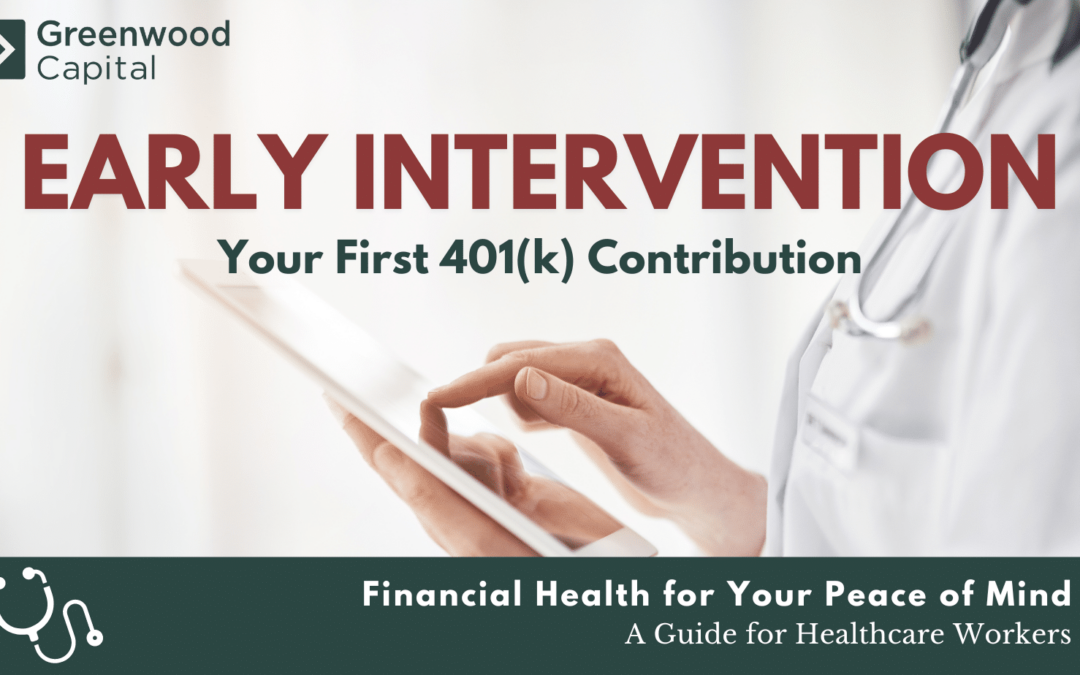I grew up in a single parent household watching my mom struggle to put food on the table and keep a roof over the heads of her five children, all while working a minimum wage job. It left a lasting impression on me. One that, no doubt, has impacted my career decisions and shaped my future.
Because of these experiences, helping women find financial peace became a very close and personal goal to me. Ongoing stress about money has been linked to many health issues including migraines, heart disease, diabetes, strokes, and sleep disorders. Financial problems can lead to delayed medical treatment and, if left untreated, these issues can lead to life threatening illnesses which lead to even more financial stress due to missed work and medical expenses. It is a vicious cycle. Unfortunately, the coping mechanisms people often use to numb the anxiety of financial stress such as drinking, smoking, overeating, and overspending only exacerbate the problem.
Why is Financial Health Especially Important for Women?
1. We often do not earn as much as men which naturally leads to lower savings opportunity and lower social security income at retirement. Women are 35% more likely to live in poverty than men.
2. Women often lack confidence and are often too conservative when it comes to investing, causing us to miss out on growth opportunities.
3. When children or parents require a caregiver, women are usually the one to leave the workforce, again affecting earnings, savings, and social security income.
4. We live, on average, 4 years longer than men so our money needs to stretch further.
5. Since we live longer, we are more likely to develop health issues such as Alzheimer’s, arthritis, or heart disease. I had not realized 2/3 of Alzheimer patients are women. Health issues lead to additional healthcare costs.
These statistics can feel overwhelming. But there’s one more thing to remember:
6. Women today have never been in a better position to achieve financial security.
Rather than focusing on the negatives, we are going to spend our time together discussing the positive steps you can take to improve your financial situation. Wherever you are, these are steps you can take to take charge of your future, even if today you are the one crying at your kitchen table.

Step 1: Know Where You are Financially
Ignoring the numbers, putting your head in the sand, or hoping things will work out is not helpful. This behavior actually increases anxiety. I have worked with numerous clients who had enough wealth to cover their lifetime, but the fear of running out of money paralyzed them and kept them from enjoying life. On the other hand, I have also worked with folks who spent well beyond their means not realizing how quickly their funds were being depleted.
This first step is the most important and the least popular. However, you understand what you own, what you owe, how much is coming in, and how much is going out to identify opportunities for improvement. Armed with this information, we can uncover numerous strategies to improve your financial situation that might include:
- Cutting expenses/saving more
- Developing an investment strategy
- Saving tax dollars
- Developing an estate plan
- Consolidating debt/refinancing
- Developing a spending plan
While the thought of taking a hard look at your situation may seem scary, knowing where you are and starting to take the steps to improve will help you have more peace of mind about your financial future. As the saying goes, Rome was not built in a day. Do not underestimate the impact taking small steps can make.
STEP 2: BE ACTIVELY INVOLVED
If you are in a relationship, be sure you are actively involved in the finances. I encourage all parties concerned to come to our meetings. Today, with online accounts and password protection, if you are not involved, it can be very difficult to get access to information when a partner passes away. I helped one client who lost her spouse unexpectedly and it took us over 6 months just to uncover and locate their accounts. As you can imagine, this caused extreme stress and anxiety on top of the shock of losing her spouse.

Step 3: Assemble a Team of Trusted Professionals
I encourage the team approach with my clients and include their CPA, attorney, insurance agent, and banker alongside my work as their Certified Financial Planner/investment advisor. As a CFP, I help my clients put together a comprehensive financial plan based on their resources, goals, and spending plans. Because I analyze their entire financial picture, (investments, retirement, insurance, taxes, education plans, estate plans, and budget) I often uncover opportunities requiring professional services outside my own. By having the professional team in place, and with the clients’ permission, the team can work together to provide the client with the best solution.
Step 4: Work through the “Taking Charge Checklist”
As you gain a better understanding of your financial picture and with the right professionals supporting you, you can start to work through smaller details. This checklist is a great place to start:
Review beneficiaries on life insurance and retirement plans
Build a six-month emergency fund
Check titling on all assets
Shop Property & Casualty insurance
Add an umbrella policy if you do not have one
Locate life insurance policies and have them reviewed by a CFP®
Locate legal documents. Update them if you have moved to another state since they were prepared or if more than 8-10 years old
Plan for Long Term Care
Have a CFP® analyze your investment accounts for risk vs. return, performance, cost, appropriate allocation, etc.
Consider a home equity line of credit
If you are paying more than 4% interest on debt, consider consolidation or refinancing
In closing, let me urge you to get started. The earlier you start, the less drastic changes you will need to make, the better your chance for success, and the sooner you can reach financial improvement and peace of mind.
Few things are more personal than your financial situation. Some clients have even likened it to “undressing” in front of me. I understand. I have made my fair share of financial missteps. Married and having my first child at a young age, I worked weekends in a cotton mill to put myself through college. Growing up in rural SC, I learned how to garden, so during the summer, we planted a huge garden to put food on the table. Our first big purchase was a chest freezer which we filled each summer to have food for the winter. I still have that freezer and, honestly, I dread the day that it stops working because it is a wonderful memory and a reminder of what we are capable of doing when we have dedication and determination.
I’ve shared part of my story, now I’d love to hear yours. Let’s see where we can go, together.

Melissa D. Bane
Senior Private Client Advisor











